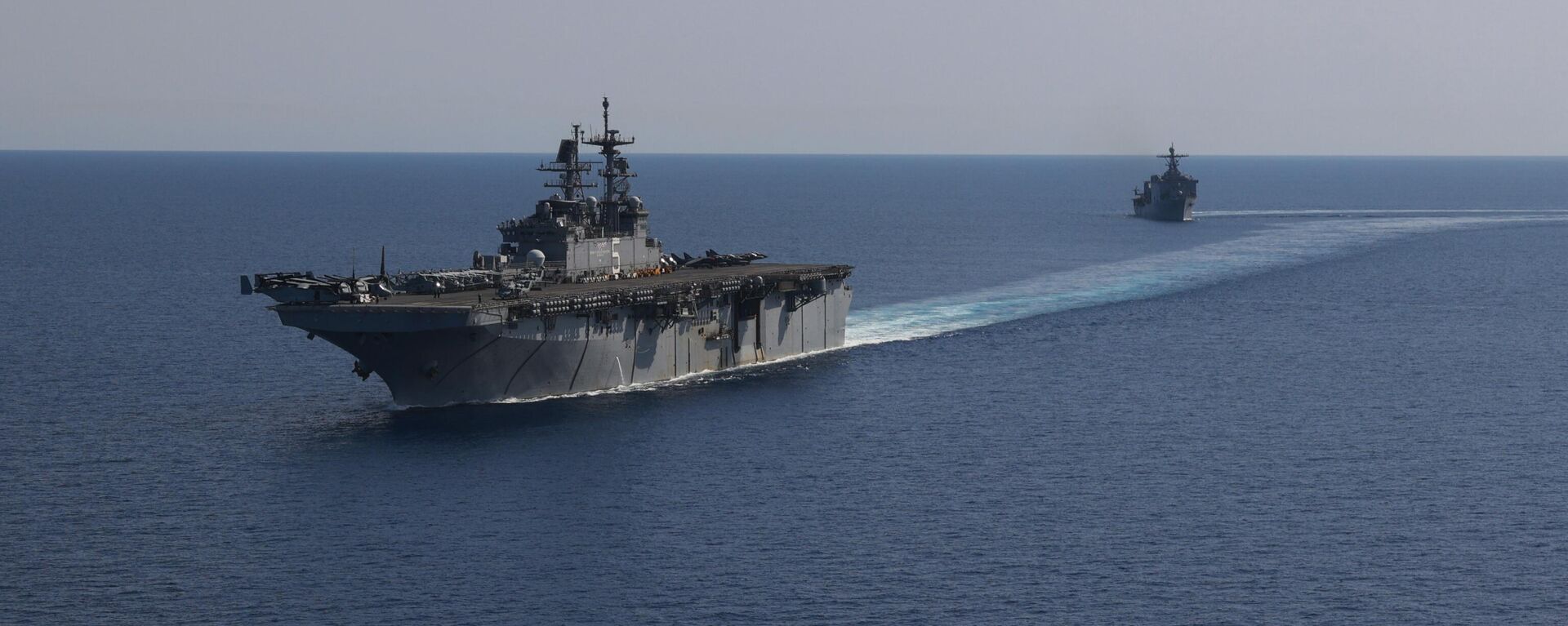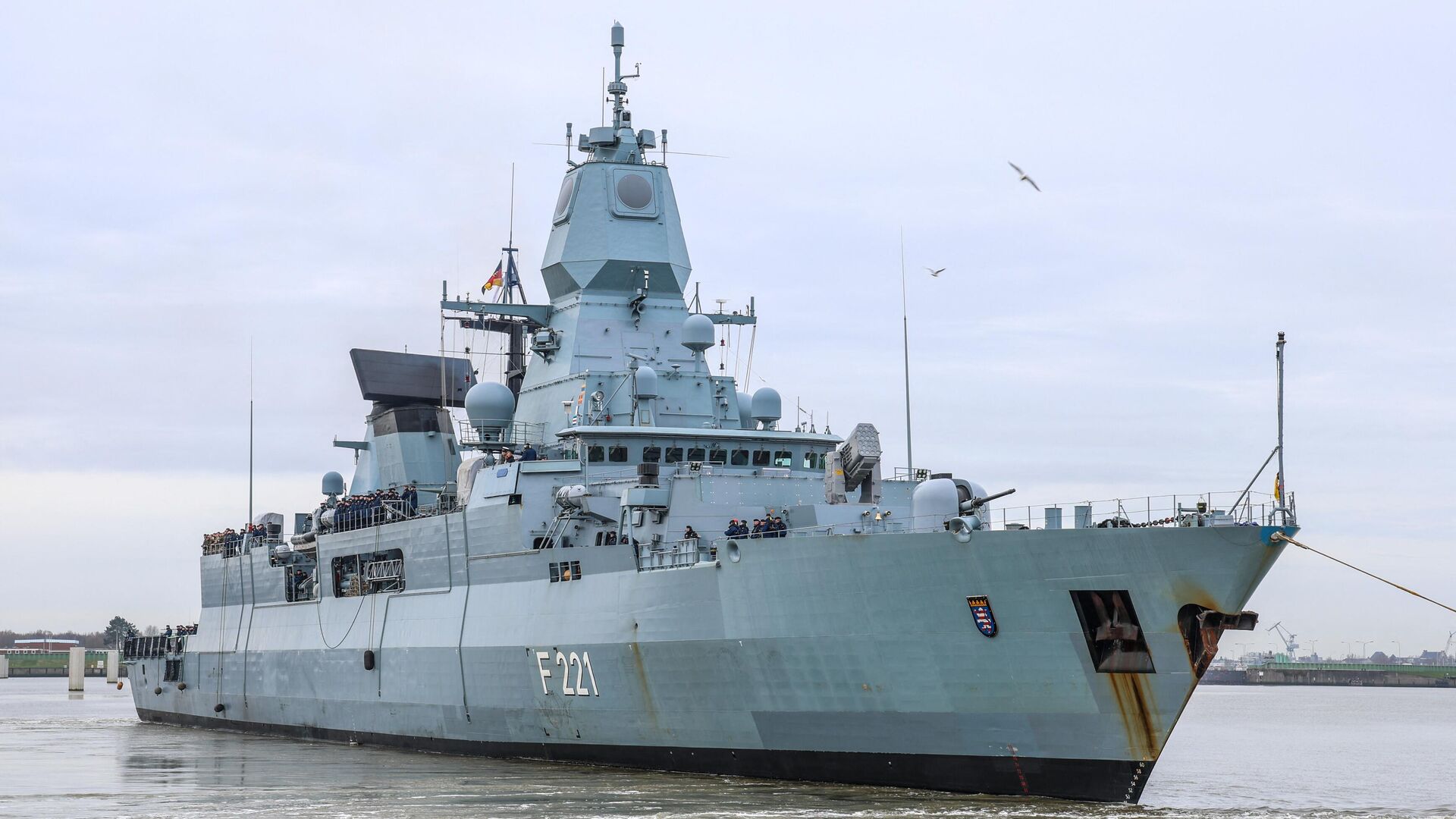https://sputnikglobe.com/20240228/ukraine-fiasco-likely-driving-west-to-seek-victory-against-houthis-1117043762.html
Ukraine 'Fiasco' Likely Driving West to Seek Victory Against Houthis
Ukraine 'Fiasco' Likely Driving West to Seek Victory Against Houthis
Sputnik International
Efforts of the US-led coalition to thwart Houthi attacks on Israeli-linked shipping in the Gulf of Aden have been recently backed by Germany which deployed one of its warships, frigate Hessen, to aid Washington’s effort.
2024-02-28T19:02+0000
2024-02-28T19:02+0000
2024-02-28T19:02+0000
analysis
european union (eu)
germany
gulf of aden
naval operation
houthis
https://cdn1.img.sputnikglobe.com/img/07e8/02/1c/1117044008_0:49:3468:2000_1920x0_80_0_0_a10cdd04f354cc31f15a634e24295b4f.jpg
The frigate’s deployment came as part of an “EU-wide operation that includes other countries as well,” said Nikolas Kosmatopoulos, assistant professor of public policy and international affairs at the American University of Beirut.According to Kosmatopoulos, this a “very worrisome development” as the European Union’s decision to join the US conflict with the Houthis leads to “extreme militarization of the waters” in the region, not to mention the EU becoming a “party to the regional war waging in Israel –Palestine.”He also suggested that it is hard to tell whether the Hessen’s deployment came as a result of US pressure on Germany or as part of an EU effort to unblock the waterway in question.On one hand, Kosmatopoulos noted, the US does seek to have other NATO members “share the burdens of the collective security under the NATO alliance,” including all of the associated costs and risks.On the other hand, “the current European governance and current European leadership seems to be willingly going in this direction.”Regarding the reason why the US seeks to drag more of its NATO allies into the confrontation with the Houthis, the scholar postulated that Washington “wants to share the responsibility, wants to make others partake in this, wants them to dirty their hands and to show what they got,” just like they did by compelling European nations to back Kiev.The ensuing escalation in the Middle East, he reasoned, “allows the US and its allies to ask for more and more intensive engagement that might also mean active military action against the Ansar Allah and Houthis in Yemen” as the West seeks to “reestablish its hegemony.”
https://sputnikglobe.com/20240227/russia-not-justifying-houthi-strikes-on-ships-or-uk-us-actions-in-yemen-says-lavrov-1117013533.html
germany
gulf of aden
Sputnik International
feedback@sputniknews.com
+74956456601
MIA „Rossiya Segodnya“
2024
Sputnik International
feedback@sputniknews.com
+74956456601
MIA „Rossiya Segodnya“
News
en_EN
Sputnik International
feedback@sputniknews.com
+74956456601
MIA „Rossiya Segodnya“
Sputnik International
feedback@sputniknews.com
+74956456601
MIA „Rossiya Segodnya“
us houthi strikes, eu red sea mission, red sea escalation
us houthi strikes, eu red sea mission, red sea escalation
Ukraine 'Fiasco' Likely Driving West to Seek Victory Against Houthis
Efforts of the US-led coalition to thwart Houthi attacks on Israeli-linked shipping in the Gulf of Aden have been recently backed by Germany which deployed one of its warships, frigate Hessen, to aid Washington’s effort.
The frigate’s deployment came as part of an “EU-wide operation that includes other countries as well,” said Nikolas Kosmatopoulos, assistant professor of public policy and international affairs at the American University of Beirut.
“I know that my country, Greece, also sent off frigates only a few days ago. So this is a major escalation. This is a very dangerous major escalation,” he told Sputnik. “[It is] A decision that's made by the EU to interfere in the conflict that has been raging in the Sea of Aden and the coast of Yemen.”
According to Kosmatopoulos, this a “very worrisome development” as the European Union’s decision to join the US
conflict with the Houthis leads to “extreme militarization of the waters” in the region, not to mention the EU becoming a “party to the regional war waging in Israel –Palestine.”

27 February 2024, 12:37 GMT
He also suggested that it is hard to tell whether the Hessen’s deployment came as a result of US pressure on Germany or as part of an EU effort to
unblock the waterway in question.
On one hand, Kosmatopoulos noted, the US does seek to have other NATO members “share the burdens of the collective security under the NATO alliance,” including all of the associated costs and risks.
On the other hand, “the current European governance and current European leadership seems to be willingly going in this direction.”
“We saw it also in the case of the Ukraine-Russia conflict that it has been more or less unified front, consolidated front that makes it difficult to decide whether it's just the US pressure or is also a collective decision of the West to close ranks and show strength in multiple fronts,” Kosmatopoulos said.
Regarding the reason why the US seeks to drag more of its NATO allies into the confrontation with the Houthis, the scholar postulated that Washington “wants to share the responsibility, wants to make others partake in this, wants them to dirty their hands and to show what they got,” just like they did by compelling European nations to back Kiev.
The ensuing escalation in the Middle East, he reasoned, “allows the US and its allies to ask for more and more intensive engagement that might also mean active military action against the Ansar Allah and Houthis in Yemen” as the West seeks to “reestablish its hegemony.”
“Perhaps the Ukraine fiasco made it necessary to have victory somewhere else,” Kosmatopoulos. “I hope that this is not understood as a zero-sum game in the Western elites. But it might look like that from the outset. So in that case, we're in for a regional flare-up, if not - bigger than that. And this is an extremely worrisome development.”



